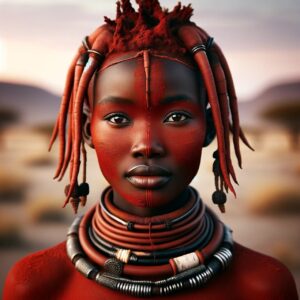 TOP 10 BIGGEST TRIBES OF AFRICA : An Introduction
TOP 10 BIGGEST TRIBES OF AFRICA : An Introduction
Africa, a continent pulsating with diversity, is home to an array of tribes, each contributing to the kaleidoscope of cultures that define the region. Among these, some stand out as the largest, with populations that have shaped the social, economic, and political landscapes of their respective nations. In this exploration, we embark on a journey to uncover the vibrant tapestry of Africa’s ten biggest tribes, each with its unique history, traditions, and contributions to the continent’s rich heritage.
Hausa People (Nigeria, Niger, Ghana, Cameroon):
With an estimated population exceeding 50 million, the Hausa people are one of the largest ethnic groups in Africa. Predominantly found in Nigeria, they also inhabit parts of Niger, Ghana, and Cameroon. The Hausa are known for their rich cultural heritage, including traditional art, music, and the vibrant celebration of festivals such as the Durbar. Renowned for their trade and business acumen, the Hausa have historically played a significant role in the economic development of West Africa.
Yoruba People (Nigeria, Benin, Togo):
The Yoruba people, numbering over 40 million, are concentrated in Nigeria, Benin, and Togo. With a history dating back centuries, the Yoruba civilization has produced remarkable art, literature, and a complex system of governance. Notable for their religious diversity, the Yoruba are known for the Ifa divination system and the vibrant masquerade festivals, such as the famous Eyo festival in Lagos. The Yoruba have significantly influenced the cultural landscape of Nigeria and beyond.
Igbo People (Nigeria):
The Igbo, numbering around 44 million, constitute one of the largest tribes in Nigeria. Known for their entrepreneurship and intellectual prowess, the Igbo have made substantial contributions to various fields. The Igbo society is deeply rooted in communal values, with a rich tapestry of folklore, music, and dance. Despite challenges, the Igbo maintain a resilient spirit, upholding their traditions while actively participating in the modern world.
Zulu People (South Africa, Zimbabwe, Zambia):
The Zulu, with a population exceeding 10 million, are the largest ethnic group in South Africa. Renowned for their warrior traditions and vibrant ceremonies, such as the Umhlanga Reed Dance, the Zulu people have a rich cultural heritage. The Zulu Kingdom, led by historical figures like Shaka Zulu, played a crucial role in shaping Southern Africa’s history. Today, the Zulu continue to celebrate their cultural identity while contributing significantly to the multicultural fabric of South Africa.
Amhara People (Ethiopia):
The Amhara people, with a population exceeding 30 million, are the second-largest ethnic group in Ethiopia. Historically influential in the country’s politics, the Amhara have a rich cultural heritage, including the ancient language of Amharic and a unique script. Known for their adherence to the Ethiopian Orthodox Tewahedo Church, the Amhara have left an indelible mark on Ethiopia’s history and continue to contribute to its cultural mosaic.
Oromo People (Ethiopia, Kenya):
The Oromo, numbering over 40 million, are the largest ethnic group in Ethiopia and also have a significant presence in Kenya. With a rich oral tradition, the Oromo people have a diverse cultural heritage that includes music, dance, and the Gadaa system—a traditional governance structure. Despite historical challenges, the Oromo continue to assert their cultural identity and actively participate in the socio-political landscape of both Ethiopia and Kenya.
Ijaw People (Nigeria):
The Ijaw, with a population of over 14 million, are one of the largest ethnic groups in Nigeria, predominantly located in the Niger Delta region. Known for their intricate beadwork, vibrant festivals, and a deep connection to the waterways, the Ijaw people have a unique cultural identity. As custodians of the Niger Delta’s rich biodiversity, the Ijaw face challenges related to oil exploration, but their resilience and cultural pride remain strong.
Berber People (North Africa):
The Berber people, also known as Amazigh, are dispersed across North Africa, including Morocco, Algeria, Tunisia, Libya, Mali, and Niger. With an estimated population exceeding 50 million, the Berbers have a rich history that predates Arab influence. Known for their unique language and cultural practices, the Berbers have contributed significantly to the cultural diversity of North Africa, maintaining a distinct identity despite centuries of external influences.
Fulani People (West Africa):
The Fulani, with a population surpassing 40 million, are spread across West Africa, including countries such as Nigeria, Senegal, Mali, Guinea, and Niger. Known for their nomadic pastoralism, the Fulani have a diverse cultural heritage, including vibrant attire, traditional music, and the practice of Islam. The Fulani people play a vital role in trade and agriculture, contributing to the economic development of the regions they inhabit.
Tutsi People (Rwanda, Burundi, Democratic Republic of Congo, Uganda):
The Tutsi people, with a population exceeding 10 million, are found primarily in the Great Lakes region of Africa. Known for their complex social structure, which historically included cattle-owning elites, the Tutsi have faced challenges, including the tragic Rwandan genocide. Despite these hardships, the Tutsi people are rebuilding their communities, emphasizing unity and reconciliation.
Conclusion:
In exploring the ten largest tribes of Africa, we traverse a landscape of cultural richness and diversity. Each tribe weaves its unique thread into the intricate tapestry of the continent, contributing to the vibrant mosaic that is Africa. Despite historical challenges and contemporary changes, these tribes stand as testaments to the resilience of human culture, preserving traditions while actively participating in the evolving narrative of their nations and the broader African continent.